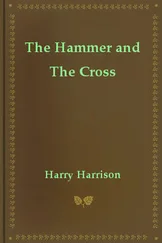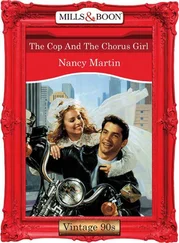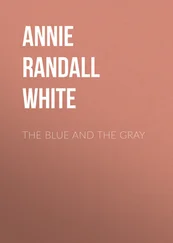Gilbert Chesterton - The Ball and the Cross
Здесь есть возможность читать онлайн «Gilbert Chesterton - The Ball and the Cross» весь текст электронной книги совершенно бесплатно (целиком полную версию без сокращений). В некоторых случаях можно слушать аудио, скачать через торрент в формате fb2 и присутствует краткое содержание. Жанр: Классическая проза, на английском языке. Описание произведения, (предисловие) а так же отзывы посетителей доступны на портале библиотеки ЛибКат.
- Название:The Ball and the Cross
- Автор:
- Жанр:
- Год:неизвестен
- ISBN:нет данных
- Рейтинг книги:5 / 5. Голосов: 1
-
Избранное:Добавить в избранное
- Отзывы:
-
Ваша оценка:
- 100
- 1
- 2
- 3
- 4
- 5
The Ball and the Cross: краткое содержание, описание и аннотация
Предлагаем к чтению аннотацию, описание, краткое содержание или предисловие (зависит от того, что написал сам автор книги «The Ball and the Cross»). Если вы не нашли необходимую информацию о книге — напишите в комментариях, мы постараемся отыскать её.
The Ball and the Cross — читать онлайн бесплатно полную книгу (весь текст) целиком
Ниже представлен текст книги, разбитый по страницам. Система сохранения места последней прочитанной страницы, позволяет с удобством читать онлайн бесплатно книгу «The Ball and the Cross», без необходимости каждый раз заново искать на чём Вы остановились. Поставьте закладку, и сможете в любой момент перейти на страницу, на которой закончили чтение.
Интервал:
Закладка:
Stiffening in himself the masculine but mirthless courage of the atheist, he drew a little nearer to the wall and, catching the man at a slightly different angle of the evening light, could see his face and figure quite plain. Two facts about him stood out in the picked colours of some piratical schoolboy’s story. The first was that his lean brown body was bare to the belt of his loose white trousers; the other that through hygiene, affectation, or whatever other cause, he had a scarlet handkerchief tied tightly but somewhat aslant across his brow. After these two facts had become emphatic, others appeared sufficiently important. One was that under the scarlet rag the hair was plentiful, but white as with the last snows of mortality. Another was that under the mop of white and senile hair the face was strong, handsome, and smiling, with a well-cut profile and a long cloven chin. The length of this lower part of the face and the strange cleft in it (which gave the man, in quite another sense from the common one, a double chin) faintly spoilt the claim of the face to absolute regularity, but it greatly assisted it in wearing the expression of half-smiling and half-sneering arrogance with which it was staring at all the stones, all the flowers, but especially at the solitary man.
“What do you want?” shouted Turnbull.
“I want you, Jimmy,” said the eccentric man on the wall, and with the very word he had let himself down with a leap on to the centre of the lawn, where he bounded once literally like an India-rubber ball and then stood grinning with his legs astride. The only three facts that Turnbull could now add to his inventory were that the man had an ugly-looking knife swinging at his trousers belt, that his brown feet were as bare as his bronzed trunk and arms, and that his eyes had a singular bleak brilliancy which was of no particular colour.
“Excuse my not being in evening dress,” said the newcomer with an urbane smile. “We scientific men, you know–I have to work my own engines–electrical engineer–very hot work.”
“Look here,” said Turnbull, sturdily clenching his fists in his trousers pockets, “I am bound to expect lunatics inside these four walls; but I do bar their coming from outside, bang out of the sunset clouds.”
“And yet you came from the outside, too, Jim,” said the stranger in a voice almost affectionate.
“What do you want?” asked Turnbull, with an explosion of temper as sudden as a pistol shot.
“I have already told you,” said the man, lowering his voice and speaking with evident sincerity; “I want you.”
“What do you want with me?”
“I want exactly what you want,” said the new-comer with a new gravity. “I want the Revolution.”
Turnbull looked at the fire-swept sky and the wind-stricken woodlands, and kept on repeating the word voicelessly to himself–the word that did indeed so thoroughly express his mood of rage as it had been among those red clouds and rocking tree-tops. “Revolution!” he said to himself. “The Revolution–yes, that is what I want right enough–anything, so long as it is a Revolution.”
To some cause he could never explain he found himself completing the sentence on the top of the wall, having automatically followed the stranger so far. But when the stranger silently indicated the rope that led to the machine, he found himself pausing and saying: “I can’t leave MacIan behind in this den.”
“We are going to destroy the Pope and all the kings,” said the new-comer. “Would it be wiser to take him with us?”
Somehow the muttering Turnbull found himself in the flying ship also, and it swung up into the sunset.
“All the great rebels have been very little rebels,” said the man with the red scarf. “They have been like fourth-form boys who sometimes venture to hit a fifth-form boy. That was all the worth of their French Revolution and regicide. The boys never really dared to defy the schoolmaster.”
“Whom do you mean by the schoolmaster?” asked Turnbull.
“You know whom I mean,” answered the strange man, as he lay back on cushions and looked up into the angry sky.
They seemed rising into stronger and stronger sunlight, as if it were sunrise rather than sunset. But when they looked down at the earth they saw it growing darker and darker. The lunatic asylum in its large rectangular grounds spread below them in a foreshortened and infantile plan, and looked for the first time the grotesque thing that it was. But the clear colours of the plan were growing darker every moment. The masses of rose or rhododendron deepened from crimson to violet. The maze of gravel pathways faded from gold to brown. By the time they had risen a few hundred feet higher nothing could be seen of that darkening landscape except the lines of lighted windows, each one of which, at least, was the light of one lost intelligence. But on them as they swept upward better and braver winds seemed to blow, and on them the ruby light of evening seemed struck, and splashed like red spurts from the grapes of Dionysus. Below them the fallen lights were literally the fallen stars of servitude. And above them all the red and raging clouds were like the leaping flags of liberty.
The man with the cloven chin seemed to have a singular power of understanding thoughts; for, as Turnbull felt the whole universe tilt and turn over his head, the stranger said exactly the right thing.
“Doesn’t it seem as if everything were being upset?” said he; “and if once everything is upset, He will be upset on top of it.”
Then, as Turnbull made no answer, his host continued:
“That is the really fine thing about space. It is topsy-turvy. You have only to climb far enough towards the morning star to feel that you are coming down to it. You have only to dive deep enough into the abyss to feel that you are rising. That is the only glory of this universe–it is a giddy universe.”
Then, as Turnbull was still silent, he added:
“The heavens are full of revolution–of the real sort of revolution. All the high things are sinking low and all the big things looking small. All the people who think they are aspiring find they are falling head foremost. And all the people who think they are condescending find they are climbing up a precipice. That is the intoxication of space. That is the only joy of eternity–doubt. There is only one pleasure the angels can possibly have in flying, and that is, that they do not know whether they are on their head or their heels.”
Then, finding his companion still mute, he fell himself into a smiling and motionless meditation, at the end of which he said suddenly:
“So MacIan converted you?”
Turnbull sprang up as if spurning the steel car from under his feet. “Converted me!” he cried. “What the devil do you mean? I have known him for a month, and I have not retracted a single–”
“This Catholicism is a curious thing,” said the man of the cloven chin in uninterrupted reflectiveness, leaning his elegant elbows over the edge of the vessel; “it soaks and weakens men without their knowing it, just as I fear it has soaked and weakened you.”
Turnbull stood in an attitude which might well have meant pitching the other man out of the flying ship.
“I am an atheist,” he said, in a stifled voice. “I have always been an atheist. I am still an atheist.” Then, addressing the other’s indolent and indifferent back, he cried: “In God’s name what do you mean?”
And the other answered without turning round:
“I mean nothing in God’s name.”
Turnbull spat over the edge of the car and fell back furiously into his seat.
The other continued still unruffled, and staring over the edge idly as an angler stares down at a stream.
“The truth is that we never thought that you could have been caught,” he said; “we counted on you as the one red-hot revolutionary left in the world. But, of course, these men like MacIan are awfully clever, especially when they pretend to be stupid.”
Читать дальшеИнтервал:
Закладка:
Похожие книги на «The Ball and the Cross»
Представляем Вашему вниманию похожие книги на «The Ball and the Cross» списком для выбора. Мы отобрали схожую по названию и смыслу литературу в надежде предоставить читателям больше вариантов отыскать новые, интересные, ещё непрочитанные произведения.
Обсуждение, отзывы о книге «The Ball and the Cross» и просто собственные мнения читателей. Оставьте ваши комментарии, напишите, что Вы думаете о произведении, его смысле или главных героях. Укажите что конкретно понравилось, а что нет, и почему Вы так считаете.









